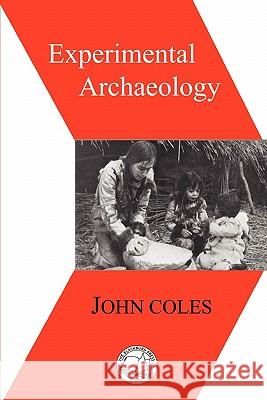Experimental Archaeology » książka
Experimental Archaeology
ISBN-13: 9781932846263 / Angielski / Miękka / 2010 / 288 str.
Experimental archaeology is an approach to the study of life in the past which attempts to throw light on early man's activities by practical reconstruction. This book, first published in 1979, picks out the major trends in experimental archaeology but the choice of work described is selective and represents the author's interest in archaeological experiment as an important means of retrieving and explaining evidence about early societies. The first chapter is an historical treatment of experimental archaeology, questioning the evidence and devising new approaches. The following chapters look at ocean voyages, the production of food and the building of houses, the manufacture and use of tools and weapons, achievements in arts and music, the erection of monumental struc-tures for the dead and, finally, modern attempts to experience 'life in the past'. The conclusion sums up the achievements and the potential of experimental archaeology and stresses the great opportunities that exist for future work. Anyone, from the amateur to the professional archaeologist or ethno-grapher, will find this book stimulating and enlightening, and it will be invaluable to all students and teachers. It provides an approach which helps archaeologists tackle the perennial problem - how the surviving relics can throw light on the life of the past. Professor John Coles has been a Fellow of the British Academy since 1978, and until 1986 was Professor of European Archaeology in the University of Cambridge. Dr. Coles is best known in British archaeology for his work in three fields; first in the archaeology of the Bronze Age, both in this country and in Europe; second, for his remarkably percipient and pioneering work on experimental archaeology; third, for his work with his wife Bryony on the wetland sites of the British Isles, and particularly in the Somerset Levels. John Coles is the best type of humane archaeologist; a scholar who understands both the scientific and theoretical complexities of his discipline without having succumbed to the many pseudo-scientific interpretations of the subject which have so bedeviled it over the last thirty years.











